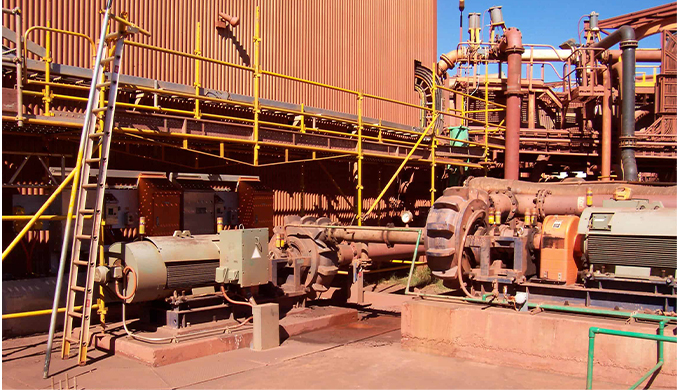English
- Afrikaans
- Albanian
- Amharic
- Arabic
- Armenian
- Azerbaijani
- Basque
- Belarusian
- Bengali
- Bosnian
- Bulgarian
- Catalan
- Cebuano
- Corsican
- Croatian
- Czech
- Danish
- Dutch
- English
- Esperanto
- Estonian
- Finnish
- French
- Frisian
- Galician
- Georgian
- German
- Greek
- Gujarati
- Haitian Creole
- hausa
- hawaiian
- Hebrew
- Hindi
- Miao
- Hungarian
- Icelandic
- igbo
- Indonesian
- irish
- Italian
- Japanese
- Javanese
- Kannada
- kazakh
- Khmer
- Rwandese
- Korean
- Kurdish
- Kyrgyz
- Lao
- Latin
- Latvian
- Lithuanian
- Luxembourgish
- Macedonian
- Malgashi
- Malay
- Malayalam
- Maltese
- Maori
- Marathi
- Mongolian
- Myanmar
- Nepali
- Norwegian
- Norwegian
- Occitan
- Pashto
- Persian
- Polish
- Portuguese
- Punjabi
- Romanian
- Russian
- Samoan
- Scottish Gaelic
- Serbian
- Sesotho
- Shona
- Sindhi
- Sinhala
- Slovak
- Slovenian
- Somali
- Spanish
- Sundanese
- Swahili
- Swedish
- Tagalog
- Tajik
- Tamil
- Tatar
- Telugu
- Thai
- Turkish
- Turkmen
- Ukrainian
- Urdu
- Uighur
- Uzbek
- Vietnamese
- Welsh
- Bantu
- Yiddish
- Yoruba
- Zulu
Telephone: +86 13120555503
Email: frank@cypump.com
Nov . 05, 2024 04:02 Back to list
ejector pump cost
Understanding the Costs of Ejector Pumps
Ejector pumps play a crucial role in various industrial applications, particularly in managing waste and transferring fluids. These specialized pumps utilize a high-pressure fluid to create a vacuum, drawing in additional liquids or gases, making them a vital component in many operations. However, the costs associated with ejector pumps can vary significantly based on several factors, which is essential to consider for businesses and industries relying on such systems.
What Influences Ejector Pump Costs?
1. Type of Ejector Pump Ejector pumps come in different types, such as steam ejectors, liquid ring ejectors, and air ejectors. Each type is designed for specific applications and operational conditions, impacting the overall cost. For instance, steam ejectors tend to be more complex and costly due to the necessary boiler systems and associated infrastructure.
2. Capacity and Size The capacity of the ejector pump, usually measured in gallons per minute (GPM) or liters per second (LPS), directly affects its price. Larger capacities often mean more robust construction and higher material costs. Industries requiring higher flow rates may find themselves paying significantly more for larger systems.
3. Materials The materials used in the manufacture of ejector pumps significantly impact their cost. Pumps made from high-quality stainless steel or special alloys designed to withstand harsh chemicals and extreme temperatures will generally be more expensive than those made from standard materials.
4. Application Specifics Depending on the industry or specific application, additional customization may be required. For example, ejector pumps used in chemical processing may need specialized seals or coatings to prevent corrosion, increasing costs further.
ejector pump cost

5. Installation and Maintenance The cost of acquiring an ejector pump doesn't end with the purchase price. Installation can require significant labor and possibly additional materials, especially for complex systems integrated into existing infrastructure. Regular maintenance is also a consideration, as ejector pumps may require frequent servicing, which can add to the overall lifetime cost.
6. Manufacturer and Brand Reputation The reputation of the manufacturer can influence pricing. Established brands with a proven track record of reliability may command higher prices than lesser-known companies. Investing in a reputable brand can be beneficial in the long term, as it often translates to better performance, durability, and customer service.
Cost Estimates
To provide a rough idea, the cost of ejector pumps can range from a few hundred to tens of thousands of dollars depending on the above factors. Smaller, less complex ejector pumps might start around $500-$1,500, while larger industrial systems could easily exceed $20,000. Custom-built systems for specialized applications can drive costs even higher.
Conclusion
In conclusion, understanding the costs associated with ejector pumps requires a comprehensive evaluation of several influencing factors. Industries that rely on these pumps should conduct thorough market research, comparing prices and features of different models to ensure they are making a sound investment. Additionally, considering the long-term operational costs, including installation, maintenance, and potential upgrades, is crucial for achieving the best return on investment. By taking these elements into account, businesses can make informed decisions about their ejector pump needs, ultimately leading to improved efficiency and effectiveness in their operations.
-
ISG Series Vertical Pipeline Pump - Chi Yuan Pumps Co., LTD.|Advanced Hydraulic Design&Energy-Efficient Solutions
NewsJul.30,2025
-
ISG Series Vertical Pipeline Pump - Chi Yuan Pumps Co., LTD.
NewsJul.30,2025
-
ISG Series Vertical Pipeline Pump - Chi Yuan Pumps Co., LTD.|energy-efficient fluid handling&industrial durability
NewsJul.30,2025
-
ISG Series Vertical Pipeline Pump - Chi Yuan Pumps | Advanced Engineering&Industrial Efficiency
NewsJul.30,2025
-
ISG Series Pipeline Pump - Chi Yuan Pumps | High Efficiency, Energy Saving
NewsJul.30,2025
-
ISG Series Vertical Pipeline Pump-Chi Yuan Pumps|High Efficiency&Reliable Performance
NewsJul.29,2025










